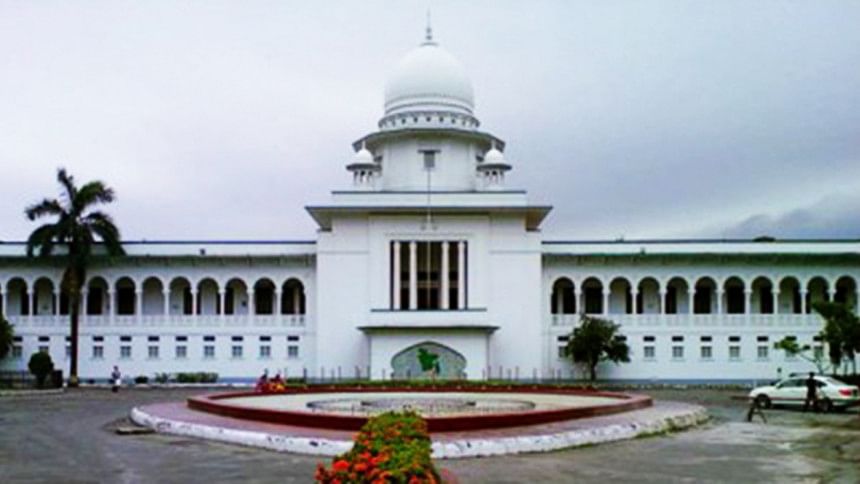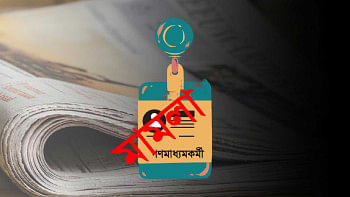Why a dispassionate & thorough investigation is required

Many may say that the way the out-going Chief Justice Sinha has resigned from his office may have saved our highest court from a protracted, complex, and unpleasant saga. In other words, this has been a graceful solution to a very uncomfortable situation. However, that departure from the office has also raised many questions and posed very grave challenges to meet. The allegations against Justice Sinha are not in the public domain, but it has been reported in our media that they include matters as serious as anomalies in his tax return and corruption. Media reports have indicated that there have been 11 specific allegations against Justice Sinha. It is critical to note that Justice Sinha's the then colleagues, honourable Justices of the Appellate Division, expressed their unwillingness to sit with him in the Bench which would imply that according to them, the allegations have been credible.
There is a very alarming tendency in our culture to be too sacrosanct about some offices of high esteem and those office bearers. For sure, Justices being bound by the code of conduct, have certain limitations in expressing their version of matters in public and hence, criticising them for actions they perform in the course of their official role can often be disproportionate or an unfair attack against which they can hardly defend themselves in public. However, from what is so far in the public domain, the allegations against Justice Sinha are a different proposition altogether. Thus, it is not a matter of something in relation to the professional functions of Justice Sinha or uncalled for personal attack on him. This is a matter of alleged corruption amounting to crimes. Our High Court Division, in a recent verdict relating to an investigation on an allegation against another retired Justice has very appositely observed that apart from the sitting President of the Republic, none has any immunity from legal proceedings. And no degree of respect for an office or the office-bearer should make her/him immune from the reach of the law. Official immunities are in relation to actions done in good faith and they do not and cannot extend to actions amounting to crimes.
A parallel may be drawn between the way the former Chief Justice had resigned and a former Judge of High Court of Australia (which is the highest court of Australia), Lionel Murphy was subjected to trial in criminal cases while being in the office. There were many allegations against Justice Murphy which included matters such as trying to bribe a senior police officer and influence a Magistrate of New South Wales in an ongoing criminal case involving one of his friends. Remarkably, the origin of the allegations was unauthorised wiretapped materials collected by some members of Australian Police force. Justice Murphy being a former political leader of the Australian Labour party, many in the government initially sought to be dismissive about the allegations and reluctant to launch investigations. His colleagues in the Australian High Court were also alarmed and expressed their reservations (rumoured to be expressed privately) in sitting on the Bench with him. Finally, to mollify the public outcry, the Federal Parliament of Australia formed a parliamentary commission to investigate the allegations. The inquiry was then halted following revelations of Justice Murphy suffering from terminal cancer and he died within a couple of months. Only recently the Australian commission's declassified reports have been classified. While the inquiry reports may not have yielded tangible outcomes, it for sure has helped fostering a culture of accountability for all irrespective of their official status.
It would be very unfortunate if the investigation is swept under the carpet or gets too protracted or does not get its full attention. For the sake of justice, it is imperative that the allegations are investigated very dispassionately and rigorously. Since Justice Sinha has always maintained his innocence, even from the viewpoint of Justice Sinha, such an investigation should be welcomed. Now that Justice Sinha is no longer in office, there is no way to form a Supreme Judicial Council and investigate the matter.
However, in addition to the investigations by the Anti-Corruption Commission (ACC), there seems to be a case for more thorough inquiry with much broader terms of reference by something like a parliamentary or judicial inquiry committee. This is because ACC would essentially investigate whether or not there is credible evidence of criminal offences being committed. However, there may be dishonest practices which would fall short of criminal offences but would be a breach of a code of conduct or behaviour expected of Justices. Thus, a wide-ranging investigation may unearth more than a technically narrower investigation by ACC. This type of inquiry would set a good example in our culture and may put many conspiracy-theories to rest or at least lose bites. Even if no concrete outcome may be achieved, a precedent of accountability would be set.
The writer is an Associate Professor at Department of Law, North South University.

 For all latest news, follow The Daily Star's Google News channel.
For all latest news, follow The Daily Star's Google News channel. 



Comments